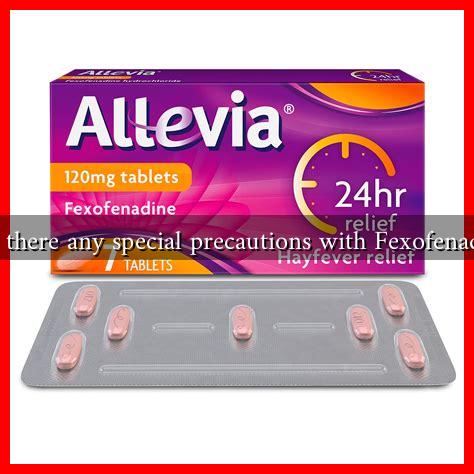-
Table of Contents
Are There Any Special Precautions with Fexofenadine?
Fexofenadine is a widely used antihistamine that helps alleviate symptoms associated with allergies, such as hay fever and hives. As with any medication, it is essential to understand the precautions and considerations that come with its use. This article delves into the special precautions associated with fexofenadine, ensuring that users are well-informed about its safe and effective use.
Understanding Fexofenadine
Fexofenadine is a second-generation antihistamine that works by blocking the action of histamine, a substance in the body that causes allergic symptoms. Unlike first-generation antihistamines, fexofenadine is less likely to cause drowsiness, making it a popular choice for those who need to maintain alertness while managing their allergy symptoms.
Special Precautions to Consider
While fexofenadine is generally considered safe for most individuals, there are specific precautions that users should be aware of:
- Kidney Function: Individuals with kidney problems should consult their healthcare provider before using fexofenadine, as the drug is primarily excreted through the kidneys. Dosage adjustments may be necessary.
- Pregnancy and Breastfeeding: Pregnant or breastfeeding women should discuss the use of fexofenadine with their healthcare provider. Although studies have not shown significant risks, caution is always advised.
- Age Considerations: Children under the age of 12 should use fexofenadine with caution, and it is essential to follow pediatric dosing guidelines. Older adults may also be more sensitive to the effects of the medication.
- Drug Interactions: Fexofenadine can interact with certain medications, including antacids containing aluminum or magnesium, which can reduce its effectiveness. It is crucial to space the administration of these medications by at least two hours.
- Allergic Reactions: Although rare, some individuals may experience allergic reactions to fexofenadine. Symptoms may include rash, itching, or difficulty breathing. Immediate medical attention is necessary in such cases.
Potential Side Effects
While fexofenadine is generally well-tolerated, some users may experience side effects. Common side effects include:
- Headache
- Dizziness
- Nausea
- Fatigue
In most cases, these side effects are mild and temporary. However, if they persist or worsen, it is advisable to consult a healthcare professional.
Case Studies and Statistics
Research has shown that fexofenadine is effective in managing allergic symptoms. A study published in the Journal of Allergy and Clinical Immunology found that fexofenadine significantly reduced symptoms in patients with seasonal allergic rhinitis compared to a placebo. Furthermore, a survey conducted by the American Academy of Allergy, Asthma & Immunology indicated that over 60% of allergy sufferers reported improved quality of life when using fexofenadine.
Conclusion
Fexofenadine is a valuable medication for managing allergy symptoms, but it is essential to be aware of the special precautions associated with its use. Individuals with kidney issues, pregnant or breastfeeding women, and those taking other medications should consult their healthcare provider before starting fexofenadine. By understanding the potential side effects and interactions, users can make informed decisions about their allergy management. Always prioritize safety and consult a healthcare professional if you have any concerns regarding the use of fexofenadine.
In summary, while fexofenadine is an effective antihistamine, being informed about its precautions can enhance its benefits and minimize risks. Always stay proactive about your health and seek guidance when necessary.

